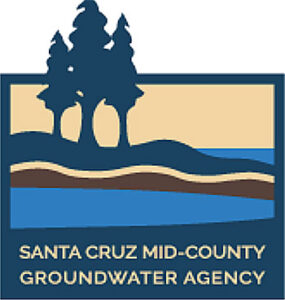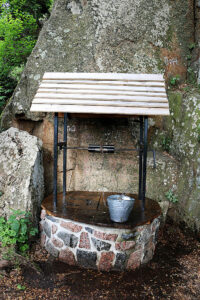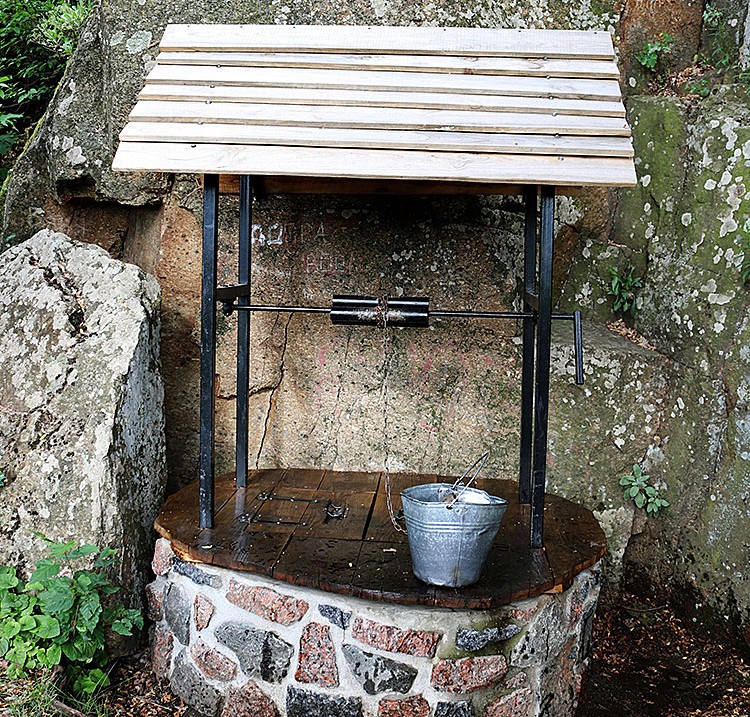In early 2025, the Santa Cruz Mid-County Groundwater Agency began an effort “to evaluate and establish an equitable funding source for regulatory compliance among the Basin’s groundwater users for compliance.”
 Compliance expenses 2016 through 2025 averaged $660,000 per year; expenses beginning in 2026 are projected at $650,000 per year.
Compliance expenses 2016 through 2025 averaged $660,000 per year; expenses beginning in 2026 are projected at $650,000 per year.
Charges could be based on groundwater usage, or be levied per parcel or per irrigated acre.
Or a hybrid fee, based on volume of groundwater and a parcel fee, could be considered. The agency estimated a parcel fee between $20 and $45 per parcel, per year.
The agency is conducting outreaching to groundwater users not currently contributing to receive input on considerations for an equitable fee.
Property related fees are subject to Prop. 218 mailed votes with a majority protest required to block the fee.
Regulatory fees to fund administration would be subject to Prop. 26 requiring two-thirds voter approval.
The evaluation will result in potential funding option recommendations for the Board to consider this year.
 The board consists of Jon Kennedy, private well owner, chairman, Carla Christensen, Soquel Creek Water District, vice chair, and nine directors Jim Kerr, private well owner, Curt Abramson, private well owner, David Baskin, City of Santa Cruz, county Supervisor Kim De Serpa, Bruce Jaffe, Soquel Creek Water District, county Supervisor Manu Koenig, Robert Marani, Central Water District, Susie O’Hara, City of Santa Cruz, and Marco Romanini, Central Water District. (Email them at www.midcountygroundwater.org)
The board consists of Jon Kennedy, private well owner, chairman, Carla Christensen, Soquel Creek Water District, vice chair, and nine directors Jim Kerr, private well owner, Curt Abramson, private well owner, David Baskin, City of Santa Cruz, county Supervisor Kim De Serpa, Bruce Jaffe, Soquel Creek Water District, county Supervisor Manu Koenig, Robert Marani, Central Water District, Susie O’Hara, City of Santa Cruz, and Marco Romanini, Central Water District. (Email them at www.midcountygroundwater.org)
Local well owners sounded off on NextDoor with more than 180 comments. Many questioned what services they receive from the agency, but a few said the aquifer is a shared resource and needs to be protected.
Groundwater use has dropped from 7,846 acre-feet in 2004 to 5,162 acre-feet in 2022.
Private wells are estimated to use 13% of the groundwater, Central Water District, 8%, City of Santa Cruz, 8%, Soquel Creek Water District, 62% and commercial/ag, 9%.
These groundwater plans represent an unfunded state mandate.
Well owners say they contribute paying for maintenance of their well and having water return to the earth via their septic system.
Why is the agency doing this now?
When the Santa Cruz Mid-County Groundwater Agency formed in 2016, the four member agencies committed to funding development of the required Groundwater Sustainability Plan and the first five years of compliance with the Sustainable Groundwater Management Act.
The plan said the agency would evaluate long-term funding options to comply with the mandate beginning in July 2026.
The member agencies that rely on groundwater are committed to funding an equitable share of compliance activities, but the board is evaluating how other beneficiaries of compliance could contribute an equitable portion to these expenses.
“We are beginning outreach now to allow for extensive public engagement in assessing funding options,” the board said.
One question well owners have: Are you going to meter my well or require me to meter my well for usage?
The board said, “Metering domestic wells is not being considered; metering “de minimis” (small) users is not authorized under the Sustainable Groundwater Management Act.”
Small means using two acre-feet or less of groundwater per year. Most private users with a domestic well use less.
The average household uses less than one-third of an acre-foot per year.
If your household relies on a single domestic well and you are not watering crops or large areas of landscape, you are likely a de minimis user.
The Santa Cruz Mid-County Basin extends from the Santa Cruz Mountains (east of Highway 17), from the Zayante fault (somewhat below Summit Road) to the Pacific Ocean and from the edge of the City of Santa Cruz near Twin Lakes in the west to La Selva Beach in the east.
The Basin includes portions of the City of Santa Cruz, the City of Capitola, plus Twin Lakes, Live Oak, Pleasure Point, Soquel, Seacliff, Aptos, and Rio Del Mar.
The Basin also includes Day Valley, Corralitos, Aptos Hills-Larkin Valley, and La Selva Beach.
When it adopted the Basin sustainability plan, the Board recognized that individual member agencies are responsible for the costs of projects needed to ensure Basin sustainability.
Such projects include the Soquel Creek Water District Pure Water Soquel Project and the City of Santa Cruz Water Department Aquifer Storage and Recovery Project.
However, the agency said, other expenses associated with complying that provide broad benefits to all Basin users, including:
- Monitoring groundwater and streamflow in the Basin
- Annual Reporting on Basin conditions and plan implementation
- Comprehensive plan evaluations at 5-year intervals
- Agency program administration
The board hosted a well-attended workshop for private well owners/users using groundwater from the basin March 17 at Simpkins Swim Center.
The agency mailed flyers to 1,800 addresses for parcels identified as residences that are not served by a public water system (e.g., Soquel Creek Water District, Central Water District, City of Santa Cruz) or a small water system.
The parcels were identified based on County of Santa Cruz records using the County Assessor residential use designations.
The agency acknowledges that assessor use code information associated with individual parcels may not reflect the property’s actual use, may be out of date or may not be accurate.
Likely some residents who received the flyer may not have a well or rely upon a private well from a neighboring property for water supply.
If you don’t own or rely on a private well for water supply, notify the agency by email, phone or letter and include your name, address and contact information.
For those unable to attend the March 17 workshop, there will be future opportunities for public input.
At least three such opportunities for input at public meetings will be scheduled over the next several months, including at MGA Board of Director meetings. The next board meeting is at 6 p.m. June 12.
The board meets quarterly.
A community meeting is expected in spring 2025. The board is expected to review a funding options analysis in summer 2025.
•••
Recordings of the presentations from the March 17 workshop are posted at www.midcountygroundwater.org/SGMAFunding
Info: (831) 204-0008 or email [email protected]

